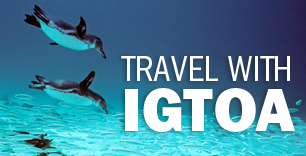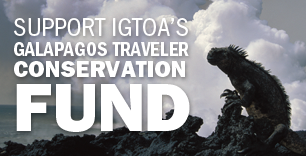Search
Tag Cloud
Subscribe
WildAid Receives $27,000 from IGTOA to Combat Invasive Species
"IGTOA continues to be a consistent ally in our efforts to conserve the Galapagos. This year IGTOA funding has been especially critical in raising awareness among both residents and tourists with respect to the threats that invasive species pose to the Galapagos."
Marcel Bigue -- Marine Program Director, WildAid
Introduced species pose the greatest existential threat to the ecosystems and terrestial wildlife of the Galapagos Islands. In recent decades, growth in tourism and the corresponding growth in the human population of the islands have gravely exacerbated the problem, since flights and cargo shipments from the mainland are the primary vectors for the introduction of new species.
Because this problem is directly tied to tourism, IGTOA has made combatting it a top priority. This year, for example, we are providing the non-profit WildAid with $27,000 to help fund a massive and critically important initiative to overhaul the biosecurity system in the islands. The new system, when complete, will include improved mainland and island port facilities, training of biosecurity inspectors, state-of-the-art equipment, improved cargo handling procedures and higher cargo vessel standards for ships entering the Galapagos archipelago.
In 2012 and 2013, IGTOA donated a total of $50,000 to WildAid to fund this same initiative, which should be completed in two years. This year, IGTOA’s funds will be used to provide specialized training for biosecurity agency personnel and to fund a communications campaign designed to raise awareness of the invasive species problem among tourists and locals. The campaign, which features two Latin Grammy-winning musicians, Jorge Villamizar and Juan Fernando Velasco, will include public service announcements (PSAs) on local television networks and inflight monitors; production of radio spots for airing on local radio stations; and the placement of print ads and billboards at airports, control posts and inflight magazines.
The Charles Darwin Foundation estimates that there are over 1,300 introduced plant and animal species in the Galapagos Islands today. While some introduced species are relatively harmless, others prey upon or out-compete native and endemic species and upset the balance of natural ecosystems. Several endemic species in the Galapagos currently face the possibility of extinction because of the impacts of introduced species. The mangrove finch, for example, is down to fewer than one hundred individuals in the wild due to an introduced fly species whose larvae devour nestlings. If the mangrove finch becomes extinct, it will be the first recorded human-caused extinction of a bird species in the Galapagos.








